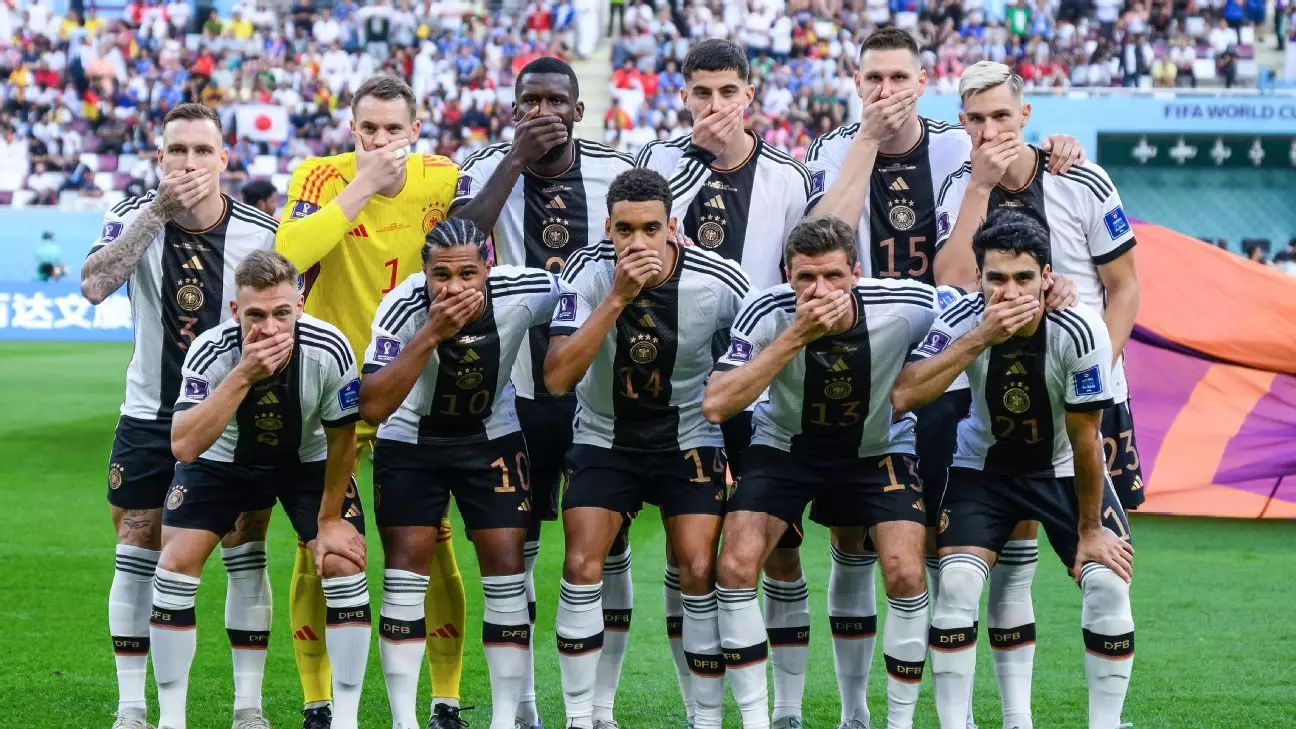In a recent press conference, Germany’s national football team captain, Joshua Kimmich, opened up a crucial dialogue about the intersection of sports and social responsibility. As athletes increasingly find themselves thrust into the spotlight on myriad political issues, Kimmich’s comments offer a compelling perspective on the expectations placed on players as potential role models. He explicitly acknowledges that while players carry the responsibility of embodying certain values, they are not necessarily equipped to navigate the complexities of political discourse. This dichotomy raises a significant question: to what extent should athletes engage with social and political issues?
Kimmich’s reflections come at a critical time, particularly with Saudi Arabia positioned as the sole bidder for the 2034 World Cup. The controversy surrounding the human rights implications of this bid casts a long shadow over the sporting event. Kimmich emphasizes that while standing for values is vital, players’ ability to influence political decisions is limited. This stance indicates a practical understanding that, despite their visibility and influence, athletes are not political experts. Rather, their primary obligation should be towards their craft and the spirit of competition. In acknowledging this limitation, Kimmich underscores the need for specialized voices to lead political discussions, allowing athletes to concentrate on performing at their best.
The mention of the 2022 World Cup in Qatar serves as a sobering reminder of the pitfalls of blending sports with political protest. Kimmich noted that Germany’s political undertones during the tournament detracted from their athletic performance and the overall experience. The act of players covering their mouths during a team photo, a protest against FIFA’s censorship concerning the “OneLove” armband, exemplifies how well-intentioned activism can cloud the core purpose of sports. Rather than fostering unity or elevating the conversation, these actions culminated in a divisive narrative that overshadowed the competition itself.
Kimmich’s retrospective analysis prompts a deeper discussion about the effectiveness of political protests within sports. While raising awareness about important issues is commendable, it can also shift focus away from the competition, creating an imbalance that detracts from the athletes’ primary goals. He poignantly observed that Germany may have missed an opportunity to present a cohesive image, one that could have celebrated both diversity and excellence in sports.
Another significant part of Kimmich’s commentary addressed the complex reality in which these discussions unfold. He nuances the belief that Western ideals, such as human rights and tolerance, should be universally upheld. This assertion is rooted in a larger narrative that acknowledges the multifaceted nature of national identities and the inherent challenges within. In admitting that Germany possesses its own shortcomings—“our own building sites”—he encourages a more introspective approach to activism. This self-awareness not only humanizes athletes but also nurtures a culture of responsibility, prompting conversations about how nations can strive for improvement at home before advocating for reforms abroad.
The conversation initiated by Kimmich is essential in framing how sport, politics, and societal values intersect. While athletes undoubtedly wield influence as public figures, it is crucial to delineate where their expertise begins and ends. As they prepare for competitions, it is vital for players to focus on their athletic responsibilities while also being encouraged to speak out on issues of significance—but in a manner that supports their primary role in sporting excellence.
Moving forward, Kimmich’s insights may well serve as a guide for both athletes and sports organizations. Balancing the scales between sporting prowess and societal responsibility is a challenging yet critical undertaking. As the world watches, it remains evident that the dialogue around sports and politics will continue to evolve, inviting players and fans alike to engage in meaningful conversations that transcend the pitch.

